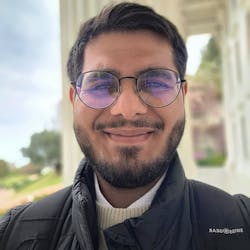Exploring the intersections of science and religion in public health
- Details
- Resources
Building on a view that science and religion are complementary “systems of knowledge and practice” (The Universal House of Justice, 2 March 2013), this evolving conversation will explore how a harmony between science and religion can manifest in the contexts of public health systems and practice. At the same time, the presenters will also share insights into a collaborative process of learning to contribute to academic and professional discourses in these areas through a structured reading group format.
Deepening questions
- How do we uncover and question hidden assumptions that influence aspects of thought and practice in public health? For example, is there a common set of moral assumptions about individuals or society that can or does guide public health?
- What lessons from religion regarding motivation and self-sacrifice could be useful for public health? How can public health draw on these motivational forces more deeply?
- How can the principle of the harmony of science and religion meaningfully impact public health systems and practice?
- What elements of a shared Baha'i evolving conceptual framework (i.e., foundational premises, principles, concepts, and approaches expressed in the Revelation) are particularly relevant for public health systems and practice? How do we learn to offer these insights thoughtfully, generously, and with humility?
- What can we learn from global Baha'i responses to COVID-19 that may inform the relationships between religion and public health?
Andrew R. Hatala
Andrew R. Hatala, PhD, is an Associate Professor in the Department of Community Health Sciences, University of Manitoba. Andrew conducts qualitative and community-based research in the areas of Psychological Anthropology, Medical Anthropology, Indigenous Health, and Community Health Psychology focused on aspects of resilience, wellness, mental health, healing, youth engagement, and spirituality. Andrew is also a recent co-editor on a Taylor and Francis collection entitled Spiritual, Religious and Faith-Based practices in Chronicity.

Jon Ehsani
Jon Ehsani, PhD, MPH, uses policy and behavioral research to prevent motor vehicle crashes and advance the health promoting aspects of transportation. Dr. Ehsani is a Professor at John Hopkins School of Public Health.

Yovania Dechtiar
Yovania Dechtiar holds a dual Master in Social Work and Public Health with a focus on community and policy practice that promotes the health and well-being of children and families. Her most recent work in the US and in Mauritius has focused on analyzing how various populations, including refugees, women in halfway homes, and adolescents in correctional facilities are being served by the systems of care that they have access to.

Anish Arora
Anish K. Arora, PhD, MSc, is a Postdoctoral Fellow in the Department of Family and Community Medicine at the University of Toronto.

46th Annual Conference
The views expressed in this recording are those of the presenters and do not necessarily represent the views of the Association for Bahá’í Studies, nor the authoritative explications of Bahá’í writings.